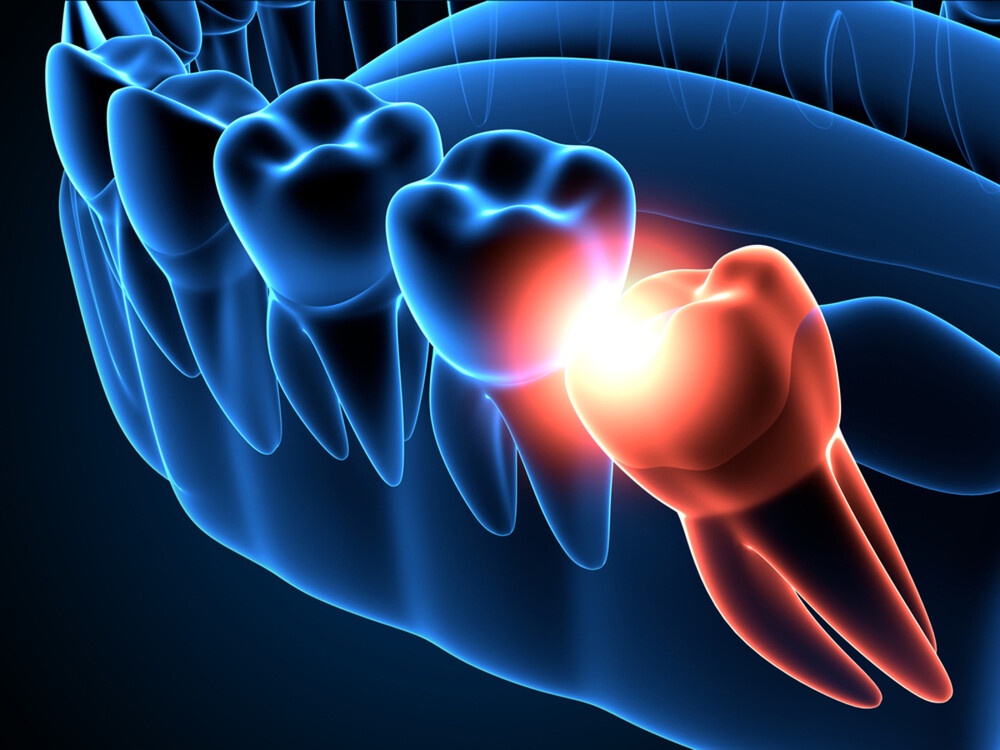Step into the realm of oral health as we address the question of wisdom teeth removal: Is it always necessary?
It explores the subtleties of third molars, which appear in late adolescence as silent sentinels. Although advantageous for evolution, these molars cause problems in the present day.
We explore this dental enigma and analyze the causes of the modern anxiety over wisdom teeth. We are looking to clarify the need for wisdom teeth removal in this informative excursion in order to enable informed decisions regarding oral health.
Whether you're seeking clarity on symptoms or contemplating alternatives to extraction, this guide is your companion in understanding the unique aspects of wisdom teeth removal in Cambridge. Your quest to good oral health begins here.
Understanding Wisdom Teeth
Wisdom teeth, scientifically known as third molars, typically emerge in your late teens or early twenties. Historically crucial for our ancestors' tougher diets, these molars now raise contemporary dental concerns. Nestled at the back of your mouth, their tardy arrival can trigger curiosity and potential issues like impaction.
While once advantageous, these molars may now pose challenges such as misalignment or overcrowding. Regular dental check-ups are vital to monitor their emergence and address potential complications.
This guide demystifies wisdom teeth, offering insights into their historical significance and potential complications, and providing essential information for informed decisions about their role in your oral health.
Signs and Symptoms
Wisdom tooth removal, a common dental procedure to address issues like impaction or infection, comes with specific signs and symptoms. Here's what to expect:
- Swelling: After the procedure, you might notice some temporary swelling around your jawline and cheeks. This is a normal part of the healing process and should ease over the next few days.
- Pain: It's common to experience mild-to-moderate discomfort post-removal. Your dentist will provide prescribed pain relief or suggest over-the-counter options for effective pain management.
- Bruising: While not everyone experiences it, bruising around the jawline or cheeks can happen and typically resolves on its own.
- Limited Mouth Opening and Jaw Stiffness: You may find it a bit challenging to fully open your mouth or experience jaw stiffness. Your dentist's advised gentle jaw exercises may be helpful.
- Difficulty Eating Solid Foods: Initially, eating solid foods might be a bit tricky. Your dentist may recommend a soft diet to make your recovery smoother.
- Low-Grade Fever: A mild fever within the first 24 hours is normal. However, any persistent or high fever should be reported promptly to your dentist.
- Numbness or Tingling: Temporary numbness or tingling in your lower lip, tongue, or cheeks may occur. Sensation usually returns gradually.
Dental clinics, specializing in surgical dentistry, perform essential procedures such as tooth extraction, ensuring comprehensive oral health care for patients.
Factors Influencing the Decision
Understanding whether wisdom tooth removal is necessary involves considering several key factors. The decision is often influenced by the potential for complications such as impaction, misalignment, or overcrowding. Age plays a role, as younger individuals may experience smoother recoveries.
Symptoms like persistent pain, swelling, or difficulty opening the mouth contribute to the decision-making process. Regular dental check-ups and X-rays are essential for a professional assessment of the wisdom teeth's impact on overall oral health.
While removal is a common recommendation, alternative approaches, including close monitoring and rigorous oral hygiene practices, may be viable in certain cases. At the dental clinic, skilled professionals perform teeth extraction, a common dental procedure aimed at maintaining overall oral health.
Alternatives to Extraction
Examine alternatives to wisdom tooth extraction for a more complex understanding. Select for close observation while following dentist advice and keeping an early eye on progress.
Strict dental hygiene, which includes brushing, flossing, and rinsing, acts as a first line of defence, reducing the likelihood of problems.
For less severe situations, routine dental examinations present a sensible option that provides careful attention without extraction. By offering alternatives that put oral health first and offering a range of options outside of the traditional extraction path, this text enhances your decision-making process.
Dental extractions are professionally performed at the clinic to take care of a variety of oral health issues and ensure the best possible dental health.
Professional Assessment and Consultation
Take the first step toward dental clarity by having your wisdom teeth professionally assessed and consulted. Dental professionals analyze teeth painlessly and use X-rays to confirm their correct position and potential problems.
Making informed decisions about your dental health is made easier with the understanding that this important step provides you with. The information gained from this expert assessment guarantees a customized strategy, ensuring the finest care for your particular circumstance.
Radiant Smiles Await: Your Wise Choice, Preston Family Dental
When we finished our discussion of the necessity of wisdom tooth removal, the value of receiving advice from a competent dentist in Cambridge or one conveniently placed near you could not be stressed.
Your concerns are given first priority by the kind and skilled staff at Preston Family Dental, who make sure that any decisions you make about having your wisdom teeth extracted are well-informed and in your best interests.
Make an appointment for a thorough examination with us to get started on the path to optimum dental health. As your trusted dentist near you, we prioritize your comfort and well-being. Preston Family Dental has qualified professionals taking care of your dental needs.


No comments yet